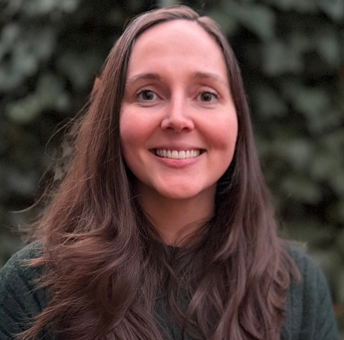Program Director Contact Information

Ellen Rubin, PharmD, BCPS, BCIDP
Clinical Pharmacy Manager - Internal Medicine and Inpatient Transitions of Care
Director - PGY2 Internal Medicine

Katherine Lee, PharmD, BCPS
Clinical Pharmacy Specialist - Internal Medicine
Coordinator - PGY2 Internal Medicine
All PGY2 Internal Medicine interviews will be held virtually for the 2026-2027 recruitment year.
For general residency questions, please email ellen.rubin@bmc.org.
Program Description
The PGY2 Internal Medicine residency program at Boston Medical Center program offers specialized training focusing in the care of internal medicine patients, including subspecialty services, while building upon foundational skills developed during PGY1 residency training.
After orientation to the department, the resident begins a series of rotations and longitudinal activities designed to meet the goals and objectives of the program. The residency is a tailored, comprehensive program that emphasizes the development of advanced pharmaceutical care skills in the area of internal medicine.
Upon completion of the program at Boston Medical Center, the resident will have achieved a level of expertise in internal medicine pharmacotherapy to function as an independent clinical specialist or educator in the area of internal medicine.
Purpose
PGY2 pharmacy residency programs build on Doctor of Pharmacy (PharmD) education and PGY1 pharmacy residency programs to contribute to the development of clinical pharmacists in specialized areas of practice. PGY2 residencies provide residents with opportunities to function independently as practitioners by conceptualizing and integrating accumulated experience and knowledge and incorporating both into the provision of patient care or other advanced practice settings. Residents who successfully complete an accredited PGY2 pharmacy residency are prepared for advanced patient care, academic, or other specialized positions, along with board certification, if available.
Program Outcomes
- Serve as an authoritative expert on the optimal use of medications in the care of internal medicine patients.
- Optimize the outcomes of patients with acute and chronic diseases in various settings through the expert provision of evidence-based, patient-centered medication therapy as an integral part of an interdisciplinary team.
- Demonstrate leadership and practice management skills.
- Manage and improve the medication-use process for internal medicine patients.
- Conduct a quality improvement or research project focused on the care of internal medicine patients.
- Demonstrate excellence in the provision of training and educational activities for healthcare professionals and trainees with a focus on internal medicine pharmacotherapy.
Core Rotations
The program has 7 required learning experiences listed below:
- Orientation
- Internal Medicine I
- Infectious Disease/Antibiotic Stewardship
- Critical Care (MICU)
- At least 2 from below:
- Internal Medicine II - Renal Subspecialty Focus
- Internal Medicine II - Geriatrics Subspecialty Focus
- Internal Medicine II - Cardiology Subspecialty Focus
- Internal Medicine II - Stroke/Neurology Subspecialty Focus
- Internal Medicine III (Precepting PGY1 resident)
Elective Rotations
The program allows the selection of 3 electives. Two shorter electives will be combined to count as 1 elective.
- Hematology/Oncology - Inpatient
- Clinical Pharmacy/Administration
- General Pediatrics
- Surgery - Floor
- Emergency Medicine
- OB/GYN
- Addiction Consult
- Endocrine Consult
- Ambulatory Care (e.g., Primary Care, Family Medicine, Cardiology)
Longitudinal Responsibilities
- IHI quality improvement project (48 weeks)
- Receive an IHI Basic Certificate in Quality and Safety
- Final manuscript submission
- Development and presentation of internal medicine related treatment guidelines
- Participation and leadership on Endocrine subcommittee
- Participation in a Resident Teaching Certificate if not completed during PGY1
- Resiliency Training
Teaching Responsibilities (48 weeks)
- 1 Resident Case Conference or Morbidity and Mortality Conference
- 1 ACPE-Accredited Continuing Education (CE) lecture
- 1 Grand Rounds presentation to medical residents
- COBTH Clinical Pearl submission
- Precepting PGY1 resident on an IM rotation
- 1 formal journal club presentation to clinical pharmacy department
Additional Opportunities
- Journal club/"Patient-Oriented Evidence that Matters" (POEM) presentations
- ACCP Internal Medicine PRN Journal Club
- Precepting students on an IM rotation
- Completion and presentation of medication use evaluations and drug monographs for formulary review
- Resiliency training
- Chief Resident Opportunity
Pharmacy Practice (Staffing) Responsibilities (52 weeks)
- Weekends
- Total of 17 weekends/year in rotating fashion (every 3-4 weeks)
- Evenings
- Total of 7 weeks/year in block scheduling fashion
- Holiday assignments
- 1 major (Thanksgiving Day, Christmas Eve, Christmas Day, New Year's Eve, New Year's Day)
- 1 minor (Memorial Day, Labor Day, Martin Luther King Day)
Benefits
- Estimated Salary: $65,300 (2026-2027)
- Vacation time: 12 days
- Office space with computer
- Travel/CE allowance (~$2,800/year): ASHP Midyear Meeting, opportunities for additional national specialty meetings (ACCP or SHM)
- $750 cafeteria allowance per academic year
- $1000 move/licensure bonus
- Lease guarantee available to minimize security deposit requirements
- Insurance Benefits: health (100% employer-paid option), dental, vision, disability, accidental death and dismemberment, life insurance
